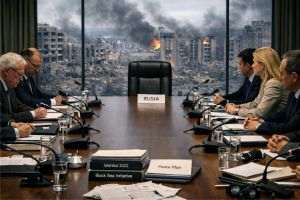The European Commission and the authorities in Bucharest announced last week that our country will receive 16.68 billion euros through the new European financial instrument SAFE (Action for the Security of Europe), a huge sum presented as a strategic investment in defense and as an engine for the economy. Official statements emphasized the creation of new jobs and the consolidation of the national defense industry, but they avoided presenting a crucial detail: citizens will not know who the companies that will actually receive this money are. That is, which companies will actually receive the 16.68 billion euros allocated by Brussels to Romania through SAFE.
Unlike other European programs, SAFE does not contain in its regulation the obligation to publish the final beneficiaries. The financial instrument was created on the basis of Article 122 of the Treaty on the Functioning of the European Union, an emergency mechanism that allows the Commission and the Council to act quickly, but which excludes the European Parliament from the legislative process and does not impose clear transparency clauses. This legal choice leaves the decision to make information public or not to be left to the discretion of the Member States.
The contrast with the European Defence Fund (EDF) is striking. For this fund, Regulation (EU) 2021/697, adopted by ordinary legislative procedure, obliges the Commission to publish annually the list of selected actions and the names of beneficiaries. In addition, Article 38 of the Financial Regulation (EU, Euratom) 2018/1046 expressly provides that the recipients of European funds must be made public, which allows access to data through the Commission's official financial transparency system. Therefore, in the case of EDF, companies such as Airbus, Leonardo or ArianeGroup appear prominently in European registers, and the press and civil society can follow exactly where the money goes.
In the case of SAFE, this guarantee is missing. Its regulation refers to the protection of classified and sensitive information, but does not include an equivalent obligation to publish the final beneficiaries. The result: Romania will receive a record amount of over 16 billion euros, but citizens will not be sure that they will be able to find out who really benefits from this scheme. In a country where distrust regarding the way public money is spent is chronic, the fact that Brussels has chosen to leave transparency to the discretion of governments is at least problematic.
Thus, while officials in Bucharest congratulate themselves on the success achieved in Brussels, the legal reality shows otherwise: SAFE does not oblige the publication of beneficiaries, because it was built on an emergency basis (art. 122 TFEU), bypassing Parliament and the usual standards of transparency. In contrast, EDF was created by a regulation with full legislative force, where clear articles - such as art. 38 of the Financial Regulation - guarantee public access to information.
The question is whether the Romanian Government will choose to let the 16.68 billion euros circulate in opacity or will it go beyond the letter of the SAFE regulation, voluntarily offering citizens the basic right to know to whom the money is distributed.
We note that the European Parliament has sued the Commission in Brussels regarding the SAFE instrument, a case that will be judged by the Court of Justice of the European Union. If the court finds that the new instrument violates European law, it could be improved, including regarding transparency rules, in the trialogue that will intervene between the Commission, the EU Council and the European Parliament.
In the meantime, the deadline for participating Member States to present their proposals to the Commission on how to spend their billions is fast approaching: November 30, 2025. However, it is not known whether those plans or proposals will be made public and whether they will be able to be carefully analyzed by the media or citizens.


















































